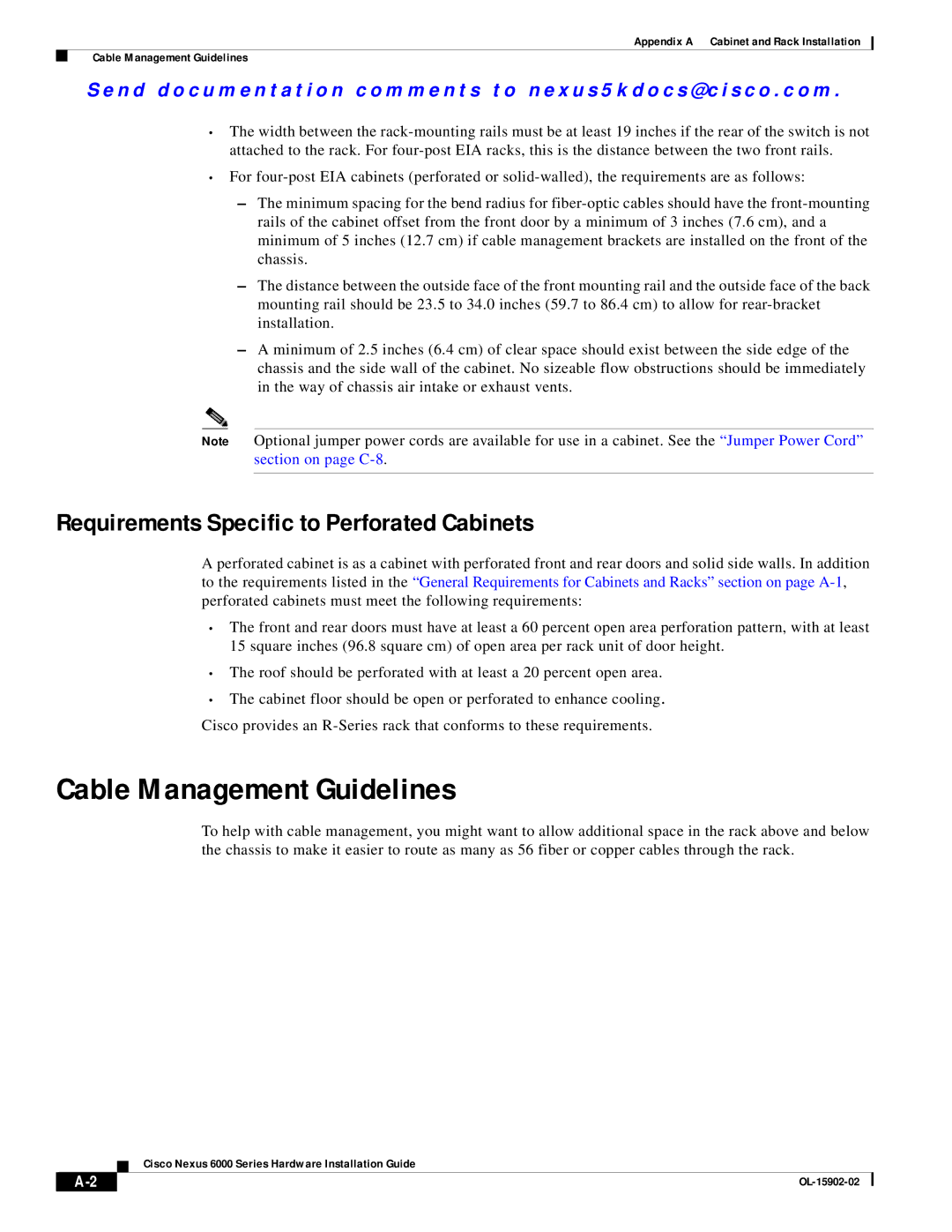
Appendix A Cabinet and Rack Installation
Cable Management Guidelines
Se n d d o c u m e n t a t i o n c o m m e n t s t o n ex u s 5 k d o c s @ c i s c o . c o m .
•The width between the
•For
–The minimum spacing for the bend radius for
–The distance between the outside face of the front mounting rail and the outside face of the back mounting rail should be 23.5 to 34.0 inches (59.7 to 86.4 cm) to allow for
–A minimum of 2.5 inches (6.4 cm) of clear space should exist between the side edge of the chassis and the side wall of the cabinet. No sizeable flow obstructions should be immediately in the way of chassis air intake or exhaust vents.
Note Optional jumper power cords are available for use in a cabinet. See the “Jumper Power Cord” section on page
Requirements Specific to Perforated Cabinets
A perforated cabinet is as a cabinet with perforated front and rear doors and solid side walls. In addition to the requirements listed in the “General Requirements for Cabinets and Racks” section on page
•The front and rear doors must have at least a 60 percent open area perforation pattern, with at least 15 square inches (96.8 square cm) of open area per rack unit of door height.
•The roof should be perforated with at least a 20 percent open area.
•The cabinet floor should be open or perforated to enhance cooling.
Cisco provides an
Cable Management Guidelines
To help with cable management, you might want to allow additional space in the rack above and below the chassis to make it easier to route as many as 56 fiber or copper cables through the rack.
Cisco Nexus 6000 Series Hardware Installation Guide
|
| ||
|
|
